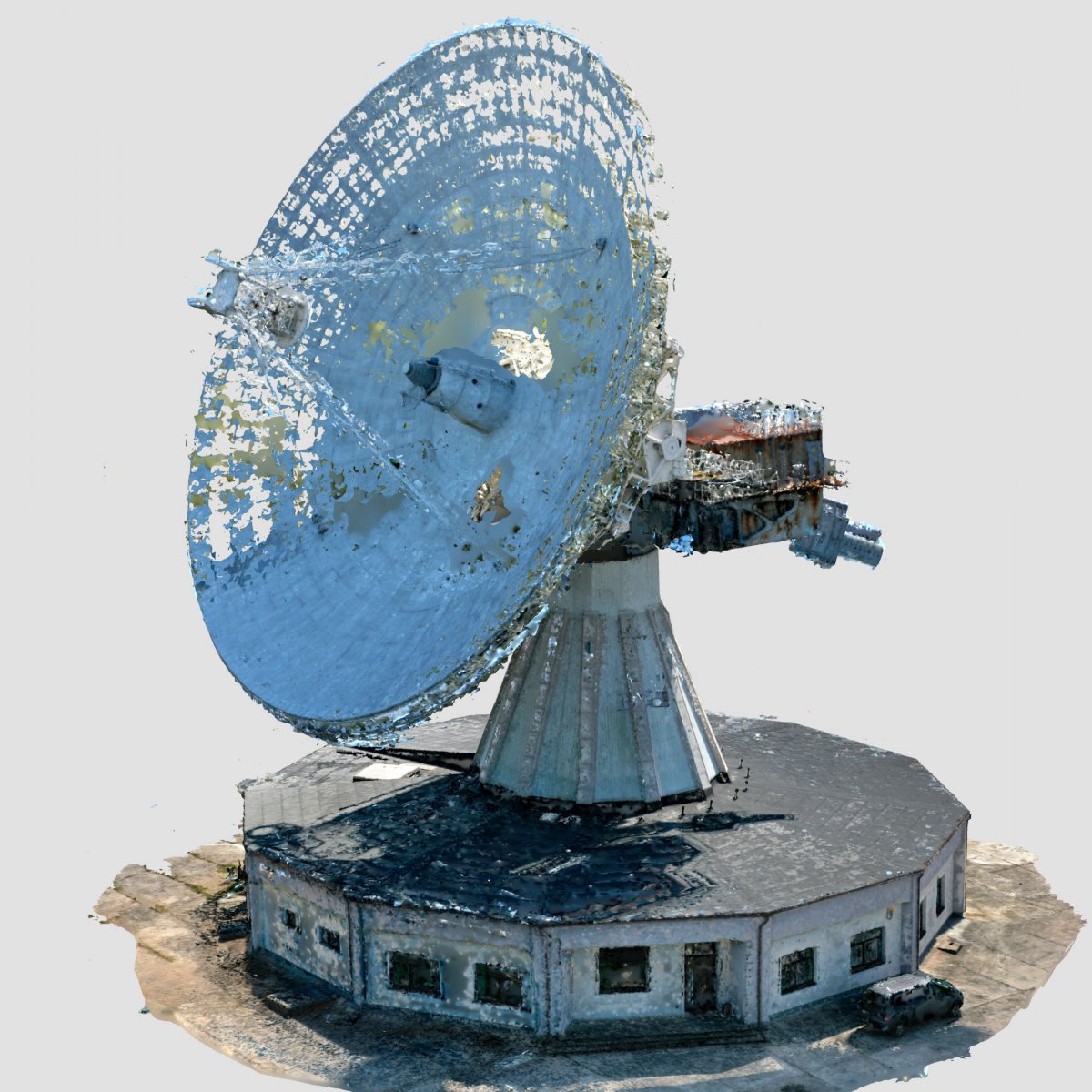
Irbene Radio telescope RT-32. Acoustic Space Laboratory (2001/2021). Rasa Šmite, Raitis Šmits, from the upcoming VR artwork
On 29 November at 6 pm we invite you to a Reading Workshop on the heritage of Cold War Infrastructures, organised in collaboration with cultural historian and cultural sociologist Eglė Rindzevičiūtė, will address the Cold War or dissonant heritage and the landscapes of technologically political infrastructures in the Baltics and elsewhere. Nowadays, with the focus on the Anthropocene, planetary care and decolonisation, suggestions prevail on how to transform, rather than to ignore or erase, this heritage, and to adapt it to today’s technological, social and cultural contexts.
“European civilization has been marked with enduring fascination with fossils, and mammoths in particular. The relics of mammoths were woven into ancient folklore. For instance, the Ancient Greeks thought that fossilised elephant bones were the bones of the cyclops. . . most Eurasian giant fossils are found in Eastern Europe, something which, as we shall see, would later be important for bridging East and West when the ice age archaeology intersected with the Cold War,” writes Eglė Rindzevičiūtė in her essay “Strange Fossils”.—”We live in a world dense with things left behind by those who came before us, but we only single out some of these things for our attention and care. We ask certain buildings, objects, and landscapes to function as mnemonic devices, to remember the pasts that produced them, and to make these pasts available for our contemplation and concern. . . We speak of vulnerable places and things needing protection, conservation, and preservation. Action is required to restore or maintain the physical integrity of the threatened object and ensure its survival. Intervention and treatment aim to protect things from outright destruction or neglect as well as more indirect processes of erosion, weathering, decay, and decomposition. But what happens if we choose not to intervene? Can we uncouple the work of memory from the burden of material stasis? What possibilities emerge when change is embraced rather than resisted?” asks professor of cultural geography Caitlin DeSilvey.
The workshop will take place online.
https://us02web.zoom.us/j/88672632325?pwd=MzZQdDhXTEFCZXZSYWcxVFpuaUJuUT09
Meeting ID: 886 7263 2325. Passcode: 571096
Texts to be discussed:
Eglė Rindzevičiūtė (2020), “Strange Fossils,” BLOK Magazine
Caitlin DeSilvey (2017), “Postpreservation: Looking Past Loss” in: Curated Decay: Heritage Beyond Saving? Minneapolis, London: University of Minnesota Press, pp. 1–21.
To receive the text, please email to: ieva.ast@gmail.com.
The reading workshop is part of the project “Reflecting Post-Socialism through Postcolonialism in the Baltics”, which analyses the imprints of post-socialism and post-colonialism in the Baltic region, exploring them through the prism of environmental history and the current ecological crisis. The programme is curated by Ieva Astahovska and Linda Kaljundi.
Dr Eglė Rindzevičiūtė is an Associate Professor at the Department of Criminology and Sociology, Kingston University London, the UK. She is the author of The Power of Systems: How Policy Sciences Opened Up the Cold War World (Cornell University Press, 2016). Her next book in progress is entitled The Will to Predict: Orchestrating the Future. Dr Rindzevičiūtė is the Principal Investigator in two research projects funded by the UK Arts and Humanities Research Council: “Nuclear Cultural Heritage: From Knowledge to Practice” (2018–21) and “Nuclear Spaces: Communities, Locations and Materialities of Nuclear Cultural Heritage (NuSPACES)” (2021–24, funded as part of the European Union’s Joint Programming Initiative for Cultural Heritage).
The project is supported by the State Culture Capital Foundation.